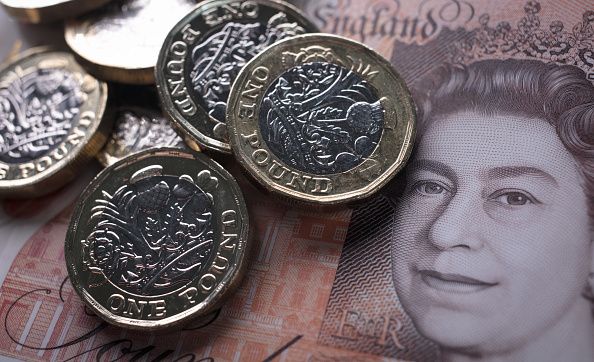(Bloomberg) -- As currency traders gird for parliamentary votes on Boris Johnson’s Brexit deal, their opportunity to win big on the pound is fading fast.
The U.K. Prime Minister will find out Tuesday whether lawmakers are willing to back his plan, but if they reject it, the risk of a no-deal Brexit that would cause sterling to plummet is now minimal. On the other hand, after an 8% rally from September’s low, potential gains versus the dollar may also be limited.
In fact, for all the recent volatility, the pound is slap bang on its average level since the Brexit referendum in 2016. A crash-out scenario is unlikely even if an election is called to resolve a parliamentary deadlock because Johnson was obliged to ask for an extension to the Oct. 31 deadline. But there’s a long way to go before the U.K.’s departure from the EU is resolved, limiting the pound’s potential to climb far from its current $1.30 level.
“We think sterling could reach $1.32-$1.34 if the deal is passed in the second reading,” said Petr Krpata, a currency strategist at ING Bank, referring to the first vote Tuesday. “But even if passed there is still the risk that the whole thing won’t get eventually through. That’s why sterling at something like $1.40 on the back of the deal being passed this week looks aggressive.”
U.K. lawmakers will hold two votes on Johnson’s Brexit deal Tuesday evening, the first around 7 p.m. London time on whether they approve of the substance of the bill and the second at 7:15 p.m. on the timetable for pushing it through Parliament. Losing the 7 p.m. vote would kill the bill while losing the subsequent Program Motion would simply make it very hard to hit Johnson’s deadline for the end of the month.
Overnight volatility on the pound shows the risk of a sharp move is easing and options suggest the upper limit of gains for now could be around $1.3150. That’s below longer-term forecasts from banks including NatWest Markets and Goldman Sachs Group Inc (NYSE:GS). that see a potential rally to $1.35 on the Brexit deal being approved.
Future constraints
Beyond that, it may be hard to bet with conviction on sterling’s outlook, given a Brexit deal will only open the door for a new round of negotiations on the future trading relationship between the U.K. and EU.
Meanwhile, an election isn’t off the table if Johnson unexpectedly fails to win backing for his deal Tuesday, or his timeline is blocked and he pulls his plan in protest. He leads in polls and may be able to win with a larger majority to push his deal through -- although that’s by no means a certainty.
“Overall downside remains substantially smaller than a no-deal outcome,” according to Jeremy Stretch, head of Group-of-10 currency strategy at Canadian Imperial Bank of Commerce. An election before year-end could send the currency toward $1.24, a 4% drop from current levels, according to Stretch.
That compares with a drop of 14% to $1.11 if there were a no-deal Brexit, based on a Bloomberg survey of analysts earlier this month.
